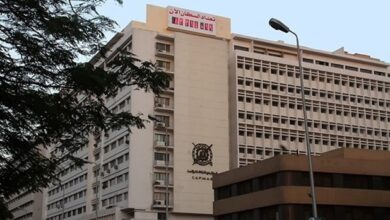Massive expenditure ahead of the parliamentary and presidential elections is slowing down the government’s ability to accelerate economic reforms, analysts say.
Boosted by the success of a new tax regime, the budget deficit in the fiscal year 2009-2010 has shrunk from 8.3 to 8.1 percent of GDP, the Ministry of Finance said in September. According to the ministry, tax revenue reached LE170.5 billion, 7.3 billion more than in FY2008/2009.
However, Egypt’s budget deficit is set to widen in the next in financial year to LE109.3 billion (7.8 percent of GDP) and the total government debt will increase to 77 percent of the GDP, up from 66 percent in the last two years, according to Business Monitor International (BMI) in its November issue of Middle East Monitor.
Hamdi Abdel-Azim, professor of economics at Al-Sadat Academy for Administrative Sciences, argues that the cabinet is trapped.
"They want to proceed with their economic policy by raising taxes and cutting subsidies in order to raise the GDP," he says. However, according to him, the National Democratic Party-based government can't risk public discontent with such measures as the elections draw near.
According to the Middle East Monitor, "Phasing out energy subsidies and broadening the tax base will likely take a backseat to political imperatives for the time being."
"The elections are shaping the dilemma," says Abdel-Azim. "The NDP government knows that soaring prices of basic food commodities will adversely affect voters’ decision as they might vote against NDP candidates."
Urban consumer price inflation crept higher in the September 2010 according to indicators covering the previous 12 months, and has reached 11 percent, up from 10.9 percent at the end of August. The rise is driven mainly by food prices which rose at least one hundred percent, according to the state statistics agency CAPMAS’ reports in October.
Two months ago, the government thought that it would be able to maintain the current level of food subsidies or even pay higher subsidies due to the relative stability of the global wheat stocks, says Gouda Abdel-Khaleq, professor of economics at Cairo University.
“It might be right that they don’t have a wheat problem in the short term but they have other serious challenges concerning the uncontrolled rise in food prices," adds Abdel-Khaleq.
Egypt, the world's biggest wheat importer, witnessed food riots in 2008 because of the soaring costs of bread.
Meanwhile, the challenge now for the government is to adopt the policies announced by different ministers ahead of the elections, says Abdel-Azim.
"Reducing the price of 400 commodities or reducing the price of drugs, as government figures promised, are measures related to the elections. But they can't go on with expanding public expenditure because it will widen the budget deficit."
Abdel-Khaleq points to the publicity that the government wants around its measures to ease economic tensions as a pre-election strategy. He also points to the fact that the government keeps silent about policies that could raise mistrust among voters, such as privatization and tax increases.
Likewise the LE150 million grant to develop the country’s poorest villages is perceived as part of the government’s quest to generate voter satisfaction.
Minister of Local Development Abdel Salam Mahgoub said in September that the allocated funding will cover the expenses of some infrastructure work such as paving roads and linking village entrances to main roads, alongside projects to improve electricity.
Another example of what economic analysts associate with electoral campaigning is the government’s refraining from collecting fines from farmers accused of burning rice husk.
Rice husk burning started in the late 1990s, when farmers resorted to destroying it as it would accumulate in their land after the crop harvesting.
Economic expert Abdel-Khaleq Farouk argues that the government distributes bonuses and incentives to government employees in every single ministry ahead of the elections.
He adds that infrastructure projects suddenly surge in most constituencies where there is a strong NDP presence.
"By launching such social and economic projects at this time, the government is simply offering electoral bribes," says Abdel Khaleq.
For Osama Ghaith, economic expert and journalist, this kind of public expenditure will not ease the social tensions because it is temporary and will fade out after the elections, under the pressures of the widening budget deficit.
"The government is in a vicious circle. It thinks that by expanding the public expenditure, it will please voters and this might be true in the short run but they will suffer forever," he says.
Ghaith expects such economic campaigning strategies to last until after the parliamentary elections, and to recur around the 2011 presidential elections.
For the Middle East Monitor, refraining from the economic reform policies eventually leads to "crowding out the private sector and limiting growth potential over the medium term.”
Beyond economic indicators, for Abdel Khaleq, such temporary measures will only lead to the further impoverishment of people, as they don’t possess a measure of far-sightedness.




